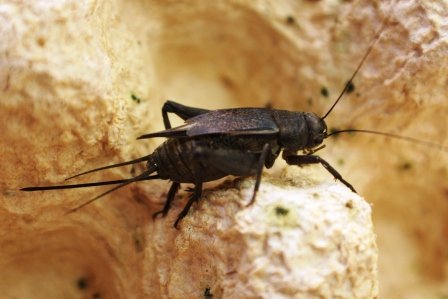ICIPE seeks to integrate insects across food system as global edible insect market set to grow by $11.42 billion over the next four years
By Zablon Oyugi
The International Centre of Insect Physiology and Ecology (ICIPE) is seeking to understand how best insects can be integrated into the food system at a time latest industry report indicates that global edible insect market is set to grow by $11.42 billion over the next four years.
According to Abdou Tenkouano, Director General of the Nairobi-based research institute that elevates the role insects play in the creation of environmentally and socially sustainable food systems across Africa, insects and food as interconnected.
“Food is produced in the field, where a diverse range of living beings, including insects, are integral to the production landscape,” said Tenkouano in an interview Food Tank.
While a recent report by Technavio, an industry-leading market research and advisory firm shows that global edible insect market is slated to grow by $11.42 billion from 2024-28 at a CAGR of 46%, the DG indicates that the role of insects in the food system extends far beyond just being a source of food on the plate.
“Insects can broadly assist in the creation of a circular economy, an economic system designed to optimize resource use and minimize waste, allowing for the recycling of organic waste into fertilizer, reducing environmental pollution, and producing nutrient-rich biomass.”
Chrysantus Tonga, Senior Scientist and Lead of icipe’s Insects for Food, Feed, and Other Uses Program on his side asserts that, in this way, insects can help decrease the number of inputs typically expected in food production.
“They speed up the composting process, reducing greenhouse gas emissions, and require minimal water for breeding. These characteristics make them an ideal protein substitute for soybean, corn, and fishmeal in animal feed,” explains Tonga.
Growing interest in making insects more present in human diets
According to the Technavio report, the growing food shortage, high nutrient density and low rearing cost of edible insects are some of the key factors that are fueling the growing interest in making insects more present in human diets and its market thereof.
In fact, in a study published in the Critical Reviews in Food Science and Nutrition Journal, the insects have high levels of vitamin B12, iron, zinc, fiber, essential amino acids, omega-3 and omega-6 fatty acids, and antioxidants.
As a result, insects have the potential to be used as meat substitutes or dietary supplements despite cultural unacceptability and the fact that insects are often perceived as “unhygienic” being some of the roadblocks affecting the edible insects’ industry.
ICIPE call this social stigma that makes it difficult for insects to gain acceptance among eaters.
Overcoming the challenge
According to Tonga, devising a method that makes insects undetected by consumers’ senses can be a good way of overcoming the challenge.
“We have observed broad acceptance when consumer-friendly, familiar, and market-driven products are introduced.”
Indeed, although seen negatively by many communities, a recently published Scientific Reports study found that 2,205 insect species are generally consumed across 128 countries.
“Edible insects are becoming an increasingly significant part of the future of planetary food systems. Therefore, more proactive efforts are required to promote them for their effective contribution to achieving sustainable food production,” suggested the Technavio findings.
Earlier this year, Singapore approved 16 species of insects as safe for human consumption, allowing CPG manufacturers to use the insects in their retail products. The list included crickets, locusts, moth larvae, mealworms, and one species of honeybee.
The Singapore Food Agency noted that it accepted insects into its food system because the insect industry is “nascent and insects are a new food item here.” This step indicated the global commercial promise of insects and insect-derived products such as insect flour or protein powder which may help convince weary consumers to test these offerings.
Tenkouano says crickets are good example in insect-based protein substitute that is “very much in demand” for human food products. He explains that research conducted by icipe’s Insects for Food, Feed, and Other Uses Program finds that “when you transform [insects] into some kind of flour that goes into making biscuits and cakes, they’re more socially acceptable.”



